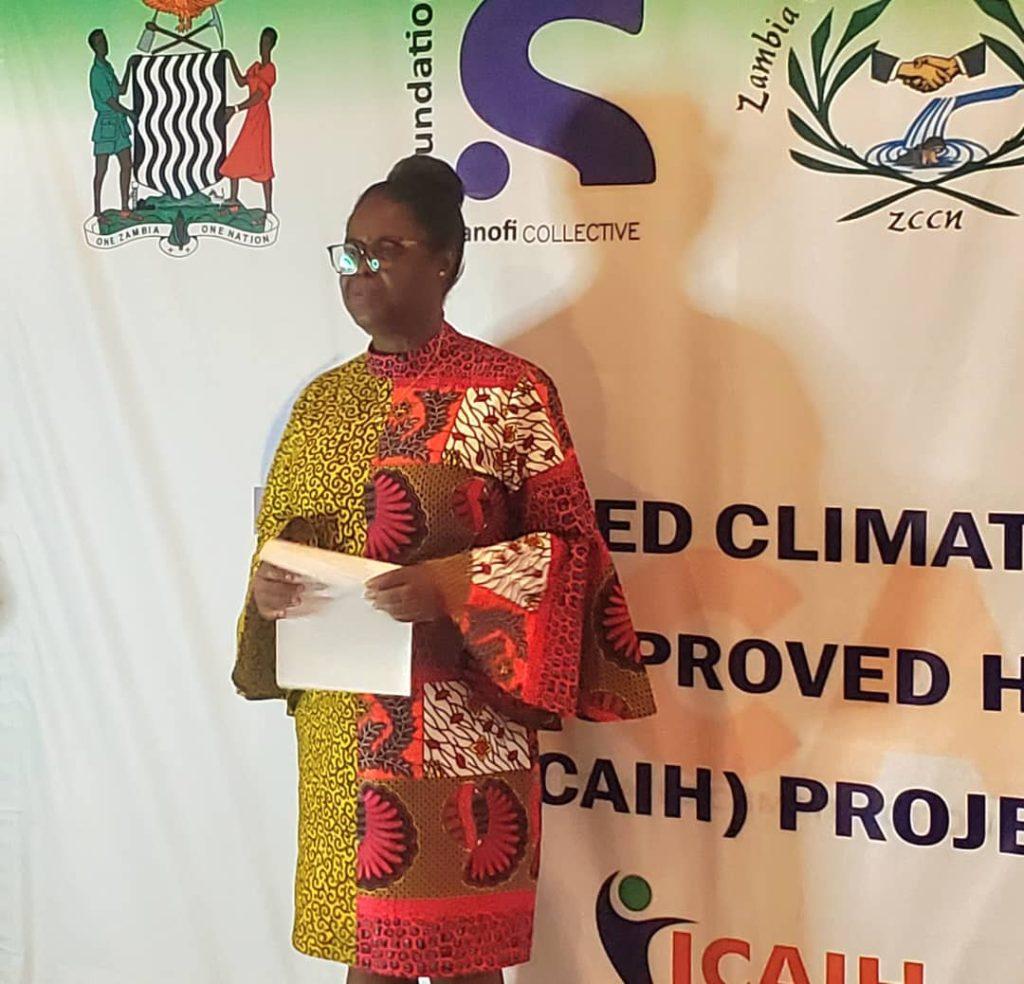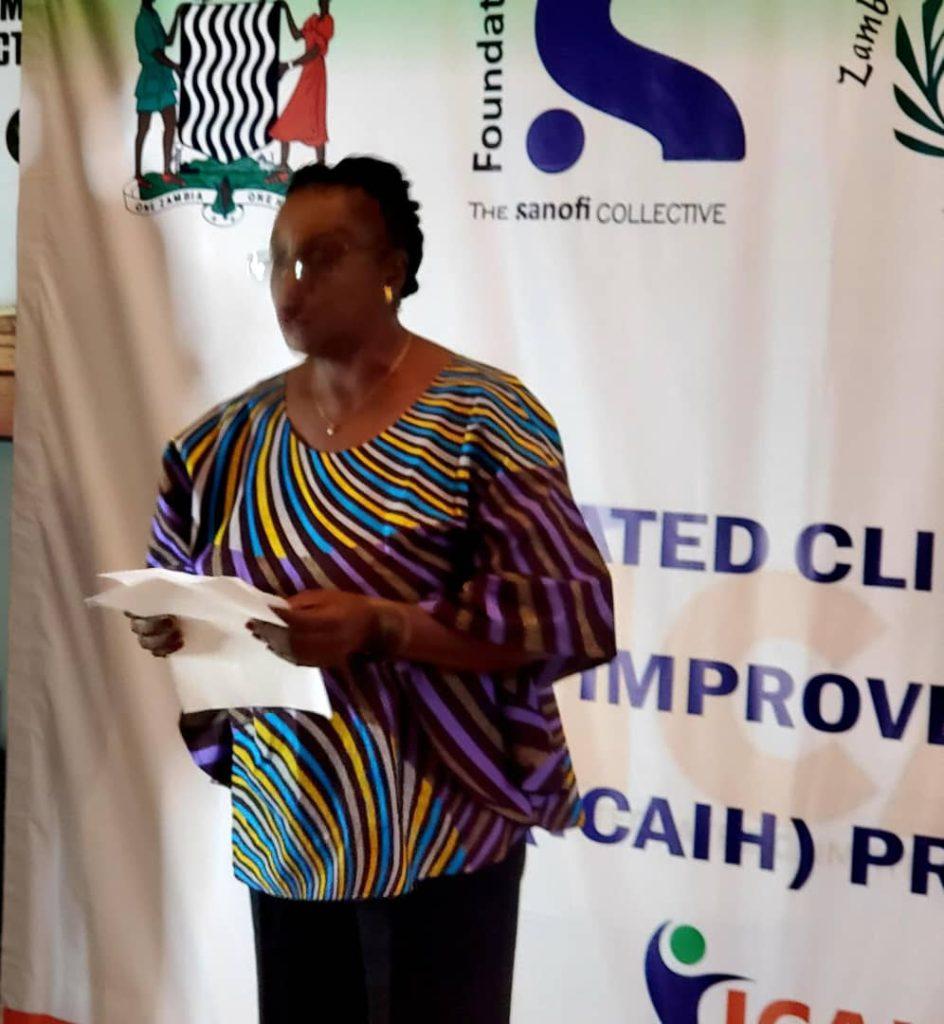“Collaborative Initiatives for Climate Action”
… Fostering Environmental Stewardship and Public Health

By Francis Maingaila
Lusaka, Zambia24 (28-03-20244) – The Integrated Climate Action for Improved Health (ICAIH) project has been launched with a focus of enhance the country’s health sector response capacity.
Through bolstering the technical capacities of health workers and mainstreaming climate change health risks into decision-making processes, Zambia aims to proactively manage emerging health threats exacerbated by climate change.
The project also focuses on cultivating a robust knowledge base to inform evidence-based responses and fostering cross-sectoral collaboration to strengthen disease surveillance systems and response mechanisms.
Jacqueline Siame, Chief Executive Officer (CEO) of the Life Initiative for Change (LIC), stated during the launch that there is an urgent need for action to combat the threat of climate change to public health.
Siame emphasized that the project, under the theme “STAND, UNITE, and ACT FOR ENVIRONMENTAL MANAGEMENT AND CLIMATE ACTION,” represents a collective endeavor reflecting the nation’s commitment to addressing community challenges.
She highlighted the project’s emphasis on partnership among participating organizations focused on developing innovative solutions and building community resilience, emphasizing the signing of endorsements to participate in the ICAIH project symbolizes collective commitment.
She said mbracing the ICAIH project, Zambia demonstrates its commitment to transitioning to a systematic approach to climate change and health.
Through proactive measures and strategic interventions, the country aims to mitigate the future burdens of climate change-related health issues and improve overall health outcomes for its citizens.
She not only encouraged all partners to actively engage in the project but also called for collaborative work among them.
Speaking at the same function, Ms. Monica Chundama, Board Chairperson for the Zambia Climate Change Network (ZCCN), emphasized the critical importance of collaboration among civil society organizations to effectively address climate change and its impact on health.
She outlined the objectives of the Zambia Climate Change Network, including establishing a common platform for coordination, mobilizing members for action, and prioritizing key areas such as governance strengthening and capacity building.

Chundama highlighted various thematic areas of concern, including land use, energy, water, sanitation, health, food security, and gender, underscoring a comprehensive approach to addressing climate-related challenges.
She underlined the significant impact of climate change on health, particularly emphasizing the increased vulnerability to diseases and malnutrition, with a focus on marginalized groups disproportionately affected.
Chundama commended the Integrated Climate Action for Improved Health project for its focus on targeting vulnerable groups and aligning with international agreements and declarations, such as the Paris Agreement and COP 28 declarations.
She stressed the importance of integrating climate considerations into policy formulation and emphasized stakeholder engagement, including civil society, government, and cooperating partners, in advancing climate justice and public health initiatives.
Highlighting the shared goals between the Integrated Climate Action for Improved Health project and the Zambia Climate Change Network’s strategic plan, Chundama indicated alignment in promoting climate resilience and enhancing public health.
Martin Mulenga, CEO of Green Cosmos Zambia, emphasized the urgency of addressing climate change at the Stakeholders Mapping Workshop.
He lauded President Hakainde Hichilema’s commitment to combating climate change and highlighted collaboration between organizations like Green Cosmos Zambia, Life Initiatives for Change, and the Zambia Climate Change Network.
Mulenga urged the government to introduce climate change education in the Zambian curriculum and called on fellow youths to actively participate in advocating for creative solutions.
Stressing the interconnectedness between environmental degradation and human activities, he advocated for efforts guided by equity, inclusion, and justice.
Mulenga affirmed the commitment to climate change and national well-being, urging unity and bold action to safeguard Zambia’s future and emphasizing the responsibility to leave a sustainable world for future generations.
He said the Stakeholders Mapping Workshop served as a catalyst for collaborative action, uniting stakeholders in a shared vision for environmental stewardship and climate resilience.
